Startling CDC stat about young adults highlights effect of coronavirus pandemic on mental health
The coronavirus pandemic has had a devastating effect on Americans, with over 6 million confirmed cases across the country, at least 190,000 deaths, and widespread psychological trauma.
Accentuating the angst, a Centers for Disease Control and Prevention (CDC) survey of 5,412 Americans this summer found that 25.5% of respondents between the ages of 18 and 24 reported having seriously considered suicide in the previous 30 days.
“When people don't feel that they have the capacity to cope and to manage and to face these kinds of threats and uncertainties, that's when some of us think about suicide,” Dr. Lynn Bufka, senior director for practice research and policy at the American Psychological Association, told Yahoo Finance. “We hope that all of these individuals who are experiencing those kinds of thoughts realize that there are ways to cope, that there are things that can be done. ... We're just sort of having to compress it all into a very short period of time for all of us wants, which makes it especially challenging.”
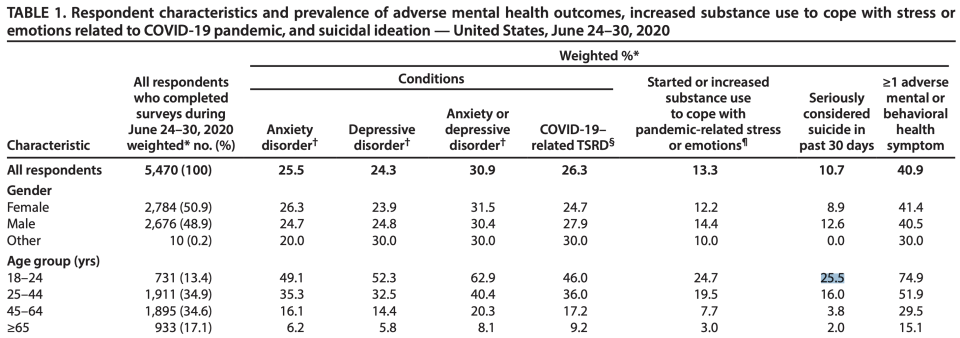
‘All of us have experienced changes in the way we live our lives’
The CDC survey also found that over 40% of respondents reported at least one adverse mental or behavioral health condition as a result of the coronavirus, echoing a previous survey of more than 10,000 American adults. Adverse mental effects include symptoms of anxiety or depressive disorder, symptoms of a trauma- and stressor-related disorder, and substance use issues to cope with coronavirus-related stress or emotions.
“What we do know is happening: For many people, this is a very stressful, for some, very traumatic period,” Bufka said. “All of us have experienced changes in the way we live our lives.”
In comparison to the 2019 survey, anxiety symptoms are twice as high and depression symptoms are four times higher.
“I hope that individuals understand that mental health is important and maybe even more so at a time that the nation is faced by a pandemic, and that we’re mindful of our own personal mental health [and of] those around us,” Rashon Lane, a CDC behavioral scientist, told Yahoo Finance. “We’re all impacted by this. So thinking of your neighbors, your friends, co-workers, who may also be having challenges with symptoms of anxiety or depression or even suicidal thoughts.” (September is National Suicide Prevention Month.)
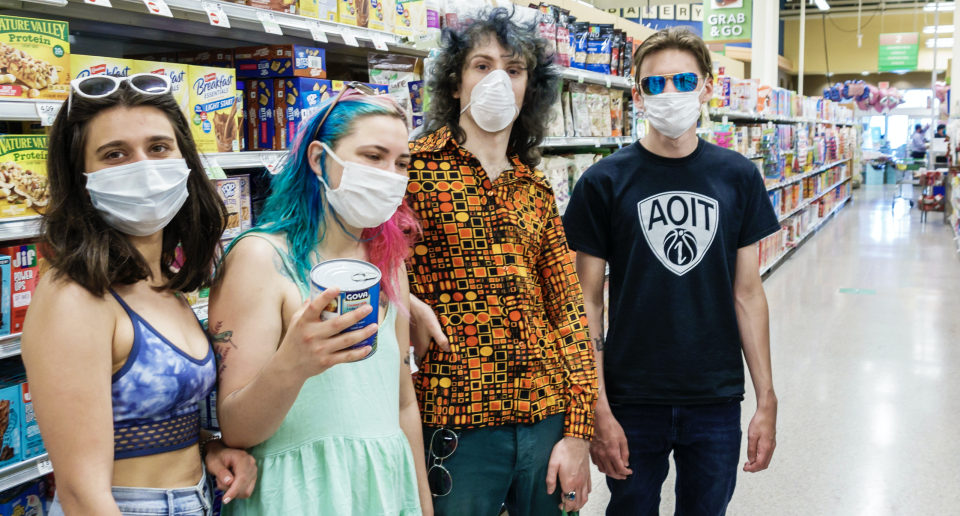
Specific demographics, along with young adults, are disproportionately affected: Minorities (particularly Hispanic and Black respondents), essential workers, and unpaid adult caregivers — all communities that have been hit particularly hard by COVID-19 and the resulting economic ramifications — reported relatively elevated adverse mental health symptoms.
“Recognizing that young adults, Hispanics, Blacks, essential workers, adult unpaid caregivers, and those who have previous psychiatric conditions are disproportionately affected, I think is something that we need to be mindful of,” Lane said. “If we start to break that down by different demographic groups, we see, for example, with young adults 18 to 24, that almost three out of four, 74.9%, reported at least one adverse mental health condition. And I think that, for us, some of those figures are pretty concerning that we’re interested in understanding more about and continuing to monitor.”
There wasn’t much difference between rural and urban communities, though people in the South and the West reported more mental/behavioral health issues than those in the Midwest and Northeast.
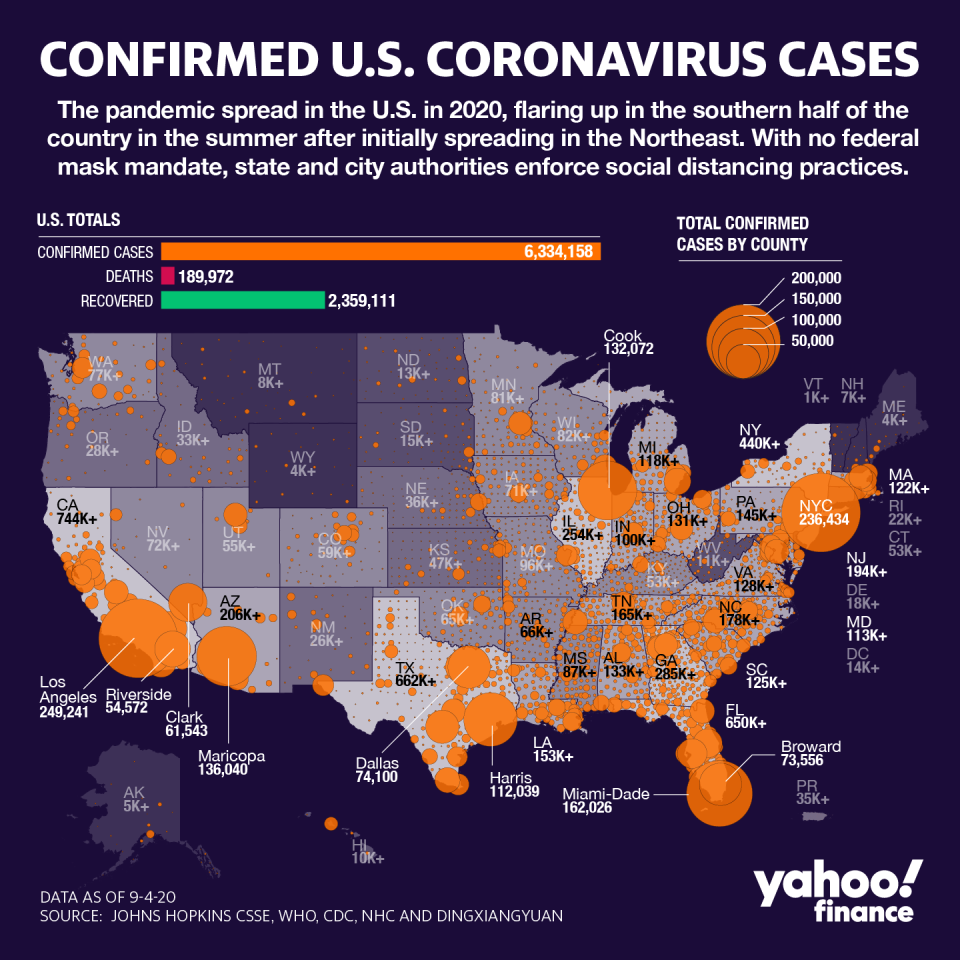
‘It’s important that we think about the continuing effects’
COVID-19 hospitalization rates for Black and Latino Americans are about 4.7 times the rate of white individuals, while American Indians and Alaska Native people are seeing hospitalization rates 5.3 times as high.
Minorities also make up nearly half of essential workers amid the pandemic: Latinos are 18.5% of the U.S. population and 21% of all essential workers; Black Americans are 13.4% of the population and 15% of essential workers; and American Indian and Alaska Natives are 1.3% of the population and 6% of all essential workers, according to U.S. Census data.
“These are populations that may be more at risk for COVID-19 or additional challenges due to the severity of COVID-19,” Lane said. “It’s important that we think about the continuing effects that this might have on some sub-populations, such as essential workers or racial ethnic minorities… [and] that we think through cultural and linguistically appropriate intervention.”
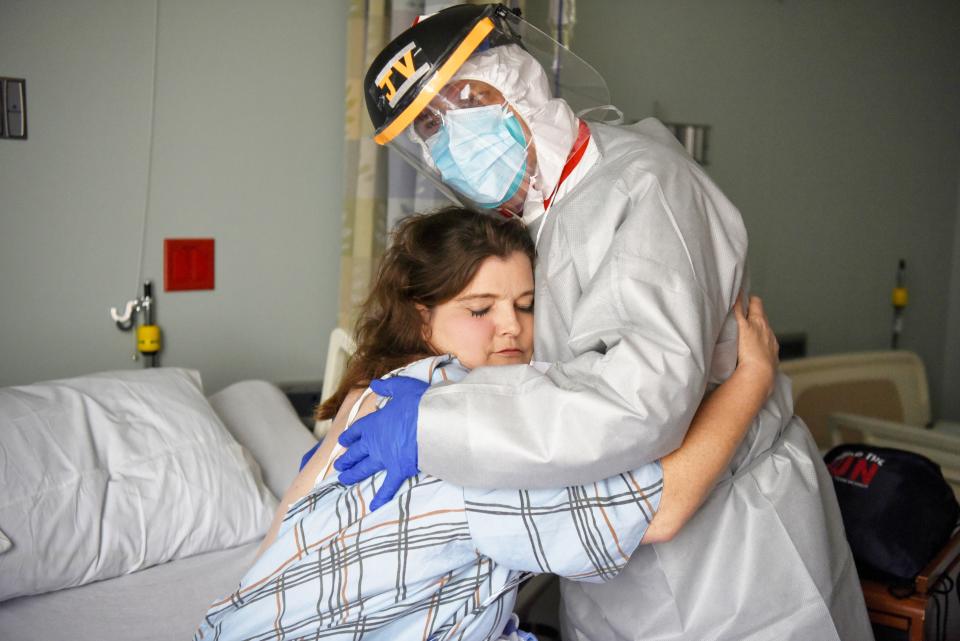
‘Financial insecurity, housing challenges ... creating additional stressors’
Aside from health-related fears, financial insecurity is a major factor for mental health — particularly as the U.S. continues to experience elevated unemployment numbers and Americans remain dependent on government stimulus amid the pandemic-induced recession.
“I will say anecdotally, we understand that given the COVID-19 pandemic, there are individuals who are experiencing financial insecurity, housing challenges that may be creating additional stressors,” Lane said. “Additionally, just thinking about ways in which to increase social support during a pandemic like COVID-19 is important to consider in the things that individuals are encountering that are impacting their mental health.”
A psychological survey of 10,368 American adults conducted by the University of Arkansas specifically cited issues like fear about losing jobs, not being able to pay bills or afford food, and “the unique juxtaposition of extreme physical distancing, approaching geographical isolation, coupled with sustained isolation.”
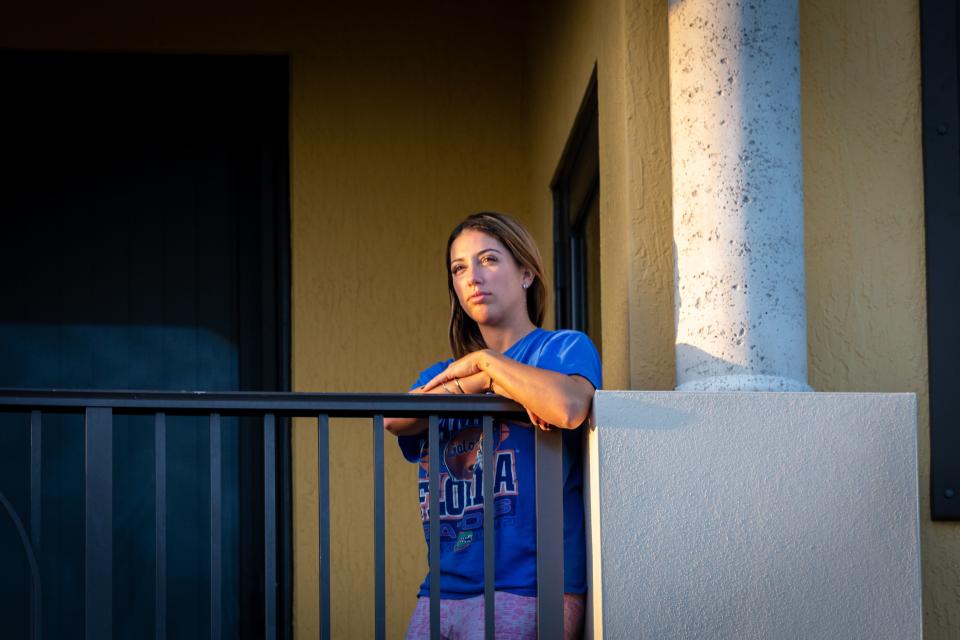
Although there is no one solution to fixing these mental health effects on Americans, Lane suggested regular screening for mental health, substance use, and suicide ideation.
“This can be in the form of traditional treatment, but also thinking about expanding use of telehealth as an effective means for delivering treatment for mental health,” she said. “In general, expanding our mental health services in the United States is important.”
Adriana is a reporter and editor covering politics and health care policy for Yahoo Finance. Follow her on Twitter @adrianambells.
READ MORE:
43% of working Americans lacked stable health care as coronavirus pandemic spread
'Fear is a primary driver': Study details pandemic's psychological impact on Americans
'A recipe for stress': Psychologist details toll of working from home amid coronavirus
Read the latest financial and business news from Yahoo Finance
Follow Yahoo Finance on Twitter, Facebook, Instagram, Flipboard, SmartNews, LinkedIn, YouTube, and reddit.
